Marco Antonio Sobrevilla Cabezudo
The Dangers of trusting Stochastic Parrots: Faithfulness and Trust in Open-domain Conversational Question Answering
May 25, 2023Abstract:Large language models are known to produce output which sounds fluent and convincing, but is also often wrong, e.g. "unfaithful" with respect to a rationale as retrieved from a knowledge base. In this paper, we show that task-based systems which exhibit certain advanced linguistic dialog behaviors, such as lexical alignment (repeating what the user said), are in fact preferred and trusted more, whereas other phenomena, such as pronouns and ellipsis are dis-preferred. We use open-domain question answering systems as our test-bed for task based dialog generation and compare several open- and closed-book models. Our results highlight the danger of systems that appear to be trustworthy by parroting user input while providing an unfaithful response.
NL-Augmenter: A Framework for Task-Sensitive Natural Language Augmentation
Dec 06, 2021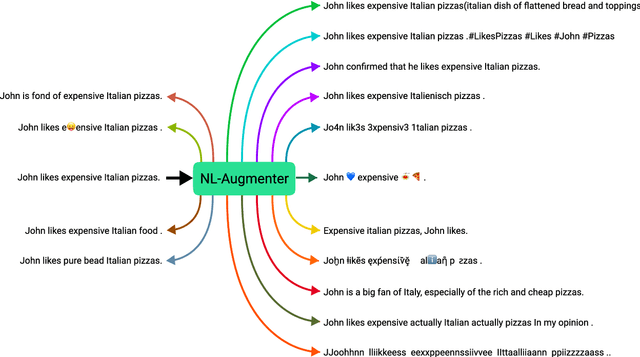
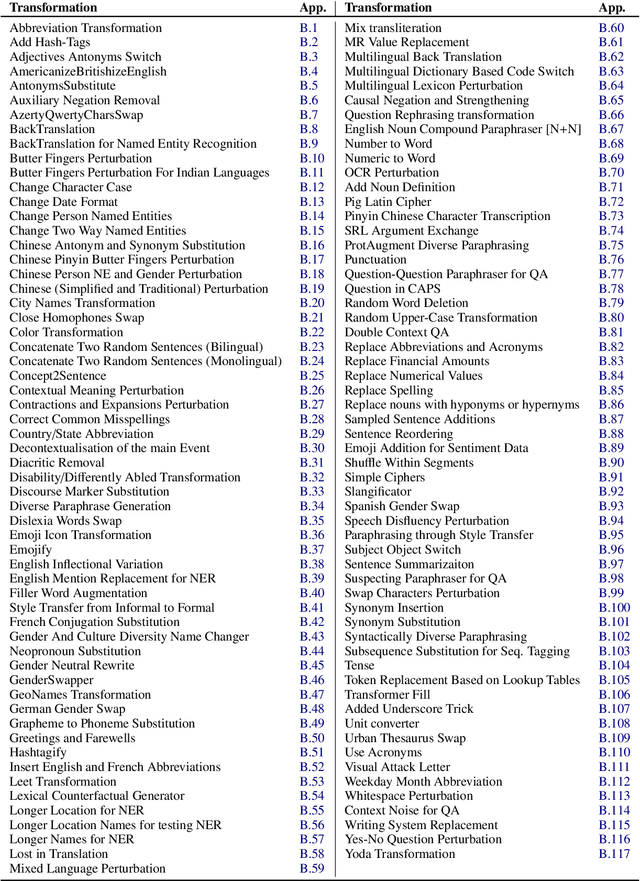
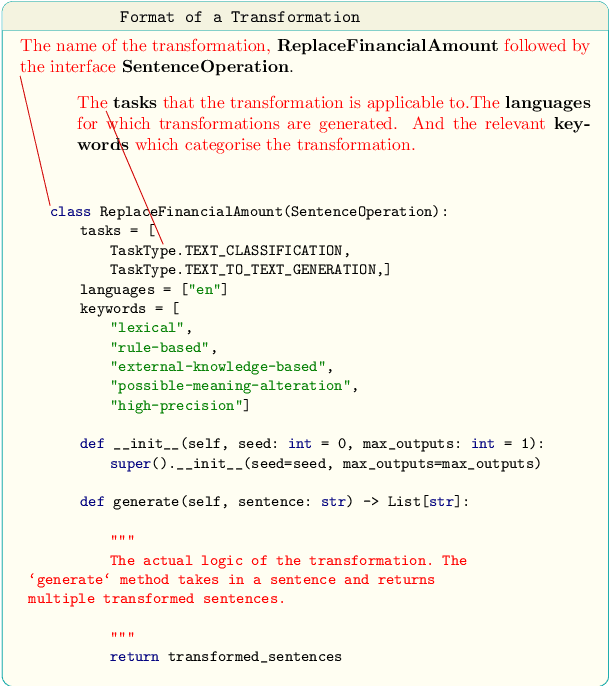
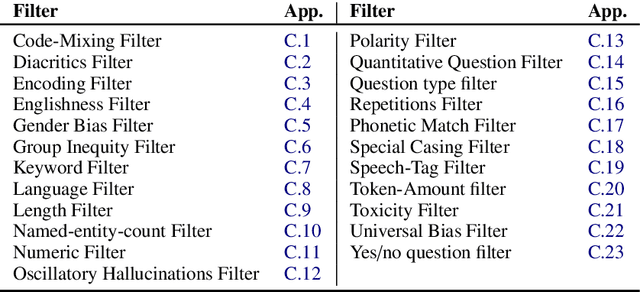
Abstract:Data augmentation is an important component in the robustness evaluation of models in natural language processing (NLP) and in enhancing the diversity of the data they are trained on. In this paper, we present NL-Augmenter, a new participatory Python-based natural language augmentation framework which supports the creation of both transformations (modifications to the data) and filters (data splits according to specific features). We describe the framework and an initial set of 117 transformations and 23 filters for a variety of natural language tasks. We demonstrate the efficacy of NL-Augmenter by using several of its transformations to analyze the robustness of popular natural language models. The infrastructure, datacards and robustness analysis results are available publicly on the NL-Augmenter repository (\url{https://github.com/GEM-benchmark/NL-Augmenter}).
The GEM Benchmark: Natural Language Generation, its Evaluation and Metrics
Feb 03, 2021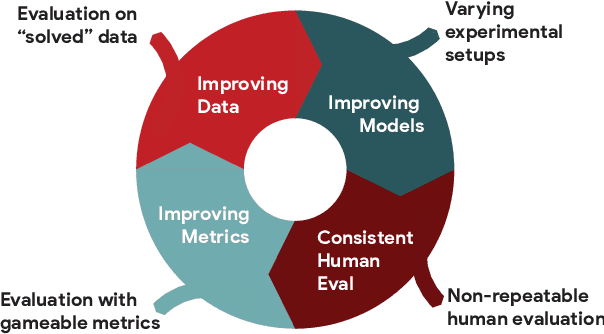
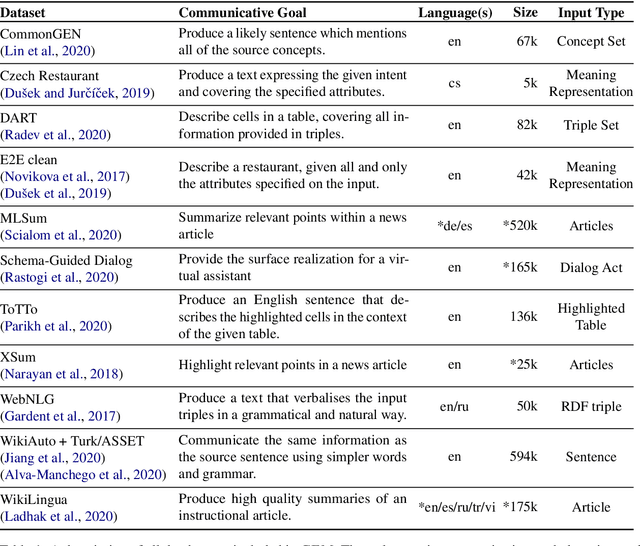
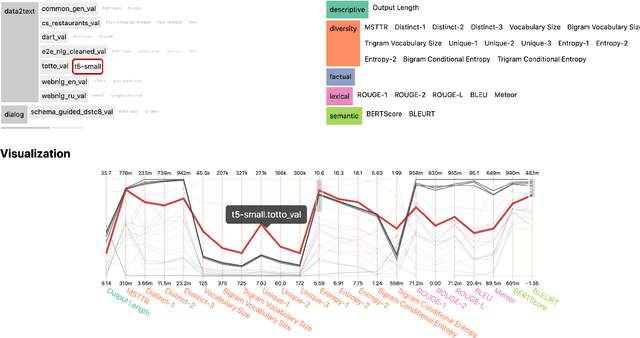
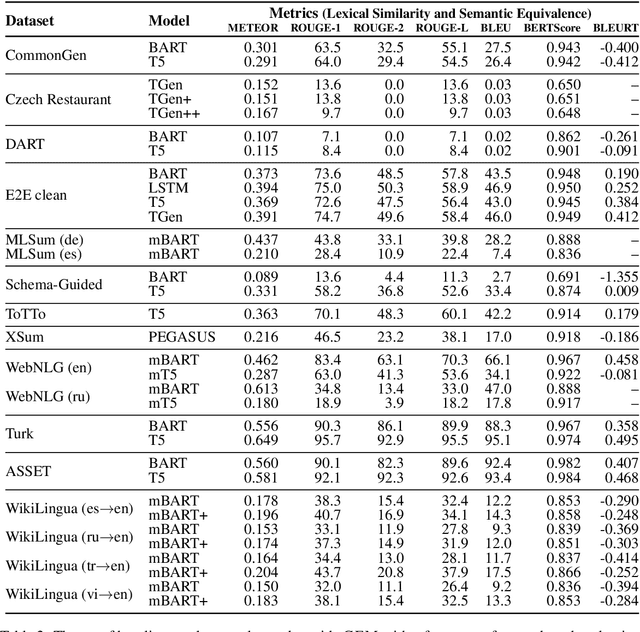
Abstract:We introduce GEM, a living benchmark for natural language Generation (NLG), its Evaluation, and Metrics. Measuring progress in NLG relies on a constantly evolving ecosystem of automated metrics, datasets, and human evaluation standards. However, due to this moving target, new models often still evaluate on divergent anglo-centric corpora with well-established, but flawed, metrics. This disconnect makes it challenging to identify the limitations of current models and opportunities for progress. Addressing this limitation, GEM provides an environment in which models can easily be applied to a wide set of corpora and evaluation strategies can be tested. Regular updates to the benchmark will help NLG research become more multilingual and evolve the challenge alongside models. This paper serves as the description of the initial release for which we are organizing a shared task at our ACL 2021 Workshop and to which we invite the entire NLG community to participate.
 Add to Chrome
Add to Chrome Add to Firefox
Add to Firefox Add to Edge
Add to Edge